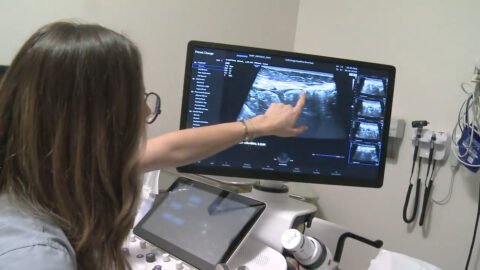Autism is a neurodevelopmental disorder that affects individuals in various ways. Early detection and diagnosis play a crucial role in providing timely interventions and support for those living with autism. Regular testing is an essential aspect of identifying and assessing autism’s presence, severity, and specific needs. This article explores the importance of testing for autism, highlighting how it aids in early intervention, individualized care, and informed decision-making.
1. Identifying the Signs: Screening for Autism
Screening tests are vital tools for identifying potential signs of autism spectrum disorder (ASD) at an early age. These tests aim to detect common behavioral patterns associated with autism, such as poor social skills, repetitive behaviors or interests, communication difficulties, and sensory sensitivities. Regular testing for autism during critical developmental milestones allows healthcare professionals to identify red flags that may require further evaluation.
2. Diagnostic Assessments: Forming a Comprehensive Picture
Once a screening test indicates a possible risk of ASD, diagnostic assessments come into play to confirm or rule out the condition definitively. These assessments typically involve interdisciplinary evaluations conducted by psychologists, psychiatrists, speech therapists, occupational therapists, and other relevant professionals.
a) Clinical Interviews: Gathering Medical History & Insight
Clinical interviews are often the initial step in autism diagnosis assessments. These interviews involve structured discussions with both caregivers and individuals seeking evaluation to gather comprehensive medical history and personal experiences.
b) Observation Measures: Capturing Unique Behaviors
Comprehensive observations help assess individuals across various environments to understand their coping mechanisms and challenges better.
c) Standardized Tests: Assessing Key Developmental Areas
Standardized tests measure various developmental domains such as social communication skills, cognitive abilities, language development, adaptive functioning, and emotional regulation. They provide quantitative data that aid in forming an accurate diagnosis.
3. The Benefits of Testing for Autism
Regular testing for autism offers several benefits for individuals on the spectrum:
a) Early Intervention & Treatment: Starting the Journey Right
Early detection allows for early intervention and treatment, which significantly improves long-term outcomes for individuals with autism. With a precise diagnosis, therapists and educators can design tailored interventions that target specific areas of delay or difficulty, helping individuals unlock their potential at an earlier stage.
b) Individualized Care & Support: Addressing Unique Needs
Testing helps identify an individual’s unique strengths and challenges, allowing professionals to tailor support plans accordingly. This personalized approach ensures that the person receives appropriate accommodations at school, therapy sessions, and community-based programs.
c) Informed Decision-Making: Advocating for Better Care
A diagnosis through comprehensive testing serves as a foundation for informed decision-making regarding educational planning, healthcare options, assistive technology needs, and opportunities for community engagement.
4. Types of Tests Used in Assessing Autism
Different tests are used to assess autism spectrum disorder based on various factors. These may include the age of the individual being evaluated and their developmental level. Here are some commonly used tests:
a) Autism Diagnostic Observation Schedule (ADOS): Interacting & Communicating Skills Assessment
ADOS is a standardized observational assessment conducted by trained professionals to evaluate an individual’s social interaction skills, nonverbal communication abilities, and restricted or repetitive behaviors.
b) Childhood Autism Rating Scale (CARS): Behavioral Assessment Tool
CARS is a tool designed to assess autistic symptoms across different ages by observing behavior patterns related to cognitive development, physiological responses, verbal communication abilities, and social engagement.
c) Social Communication Questionnaire (SCQ): Parent-Reported Screening Tool
The SCQ is a questionnaire completed by parents or guardians that provides information regarding communication skills and social interaction patterns displayed by the individual in question.
d) Developmental Evaluation of Infants (DESI): Early Detection Tool
The DESI evaluates infants between 6 months and three years old using play-based assessments designed to identify developmental delays in cognitive abilities, communication skills, motor functioning, and social interactions.
Conclusion
Testing for autism is essential to ensure timely interventions, personalized care, and informed decision-making for those on the autism spectrum. From early screening to comprehensive diagnostic assessments, testing helps professionals form a comprehensive understanding of an individual’s strengths, challenges, and unique needs. With early detection and accurate diagnosis facilitated by testing, individuals with autism can access appropriate support and resources that empower them to thrive and reach their full potential. By recognizing the importance of testing for autism, healthcare professionals and caregivers contribute significantly to enhancing the lives of those on the spectrum.

Daniel J. Morgan is the founder of Invidiata Magazine, a premier publication showcasing luxury living, arts, and culture. With a passion for excellence, Daniel has established the magazine as a beacon of sophistication and refinement, captivating discerning audiences worldwide.





